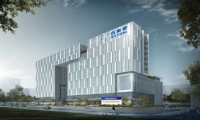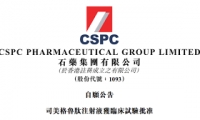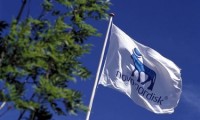-
BIO-THERA’s Phase II Clinical Trial Application for BAT8006 (ADC- FRα) for Injection Approved by US FDA
- Source: drugdu
- 566
- March 28, 2024
-
Inizio Engage and Applied Driving partner to support clinical workers with safety app
- Source: drugdu
- 392
- March 28, 2024
-
Researchers identify group of biological markers found in high levels in TB patients
- Source: drugdu
- 426
- March 28, 2024
-
Hong Kong Adventist Healthcare and Fosun Health Sign Strategic Cooperation Agreement
- Source: drugdu
- 345
- March 27, 2024
-
Hengrui’s Thiotepa for Injection for Pre-treatment of Hematopoietic Stem Cell Transplantation Approved for Marketing
- Source: drugdu
- 348
- March 27, 2024
-
CanSinoBio’s Quadrivalent Conjugate Vaccine Launches Phase III Clinical Trial in Indonesia
- Source: drugdu
- 381
- March 27, 2024
-
CSPC obtains clinical approval for semaglutide weight loss indication
- Source: drugdu
- 324
- March 27, 2024
-
MHRA warns of unsafe counterfeit anti-choking devices
- Source: drugdu
- 291
- March 27, 2024
-
Novo Nordisk’s Awiqli receives CHMP recommendation to treat diabetes in adults
- Source: drugdu
- 335
- March 27, 2024
-
Coin-Sized Device Rapidly Isolates Blood Plasma for Quicker and More Precise Clinical Diagnoses
- Source: drugdu
- 388
- March 26, 2024
your submission has already been received.
OK
Subscribe
Please enter a valid Email address!
Submit
The most relevant industry news & insight will be sent to you every two weeks.













